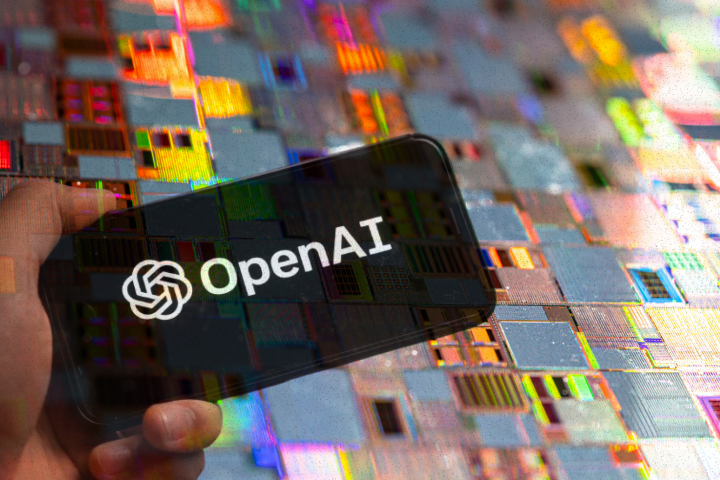MI5 chief Ken McCallum warns AI without human control could become a national security threat, though he dismisses “Terminator” scenarios.
Wild Bioscience raises $60 million to build climate-resilient crops using AI and wild plant genetics.
And the UK unveils £16 million in new cyber investments, plus a Cyber Security and Resilience Bill to protect critical infrastructure.
We have more.…
DRIVING THE CONVERSATION TODAY
MI5: Unchecked AI could threaten national security
In his annual threat address, MI5 chief Ken McCallum warned that autonomous AI systems operating without human oversight could one day pose a serious national security risk.
While dismissing Hollywood-style doomsday narratives, he stressed that terrorists already use AI for propaganda, hostile states for election interference, and British intelligence for operational efficiency.
McCallum urged proactive planning to “defend the realm” in an AI-driven future. “It would be reckless to ignore the potential for [AI] to cause harm,” he said, even if it lacks intent. The UK’s security services are already integrating AI safeguards into long-term strategy.
UK unveils £16M cyber investments, new bill
Digital Economy Minister Liz Lloyd announced major cyber initiatives at a techUK event, including:
- £6 million for startups via Cyber Runway
- £10 million for the Cyber Academic Startup Accelerator, which has spun out 34 companies
- £187 million TechFirst programme to train 1 million young people in AI and cyber skills
She also revealed the upcoming Cyber Security and Resilience Bill, which will extend regulation to critical suppliers and service providers, though most businesses will remain outside direct scope.
With 67,000+ people employed in the UK cyber sector, the government is updating its National Cyber Strategy to balance resilience, economic growth, and emerging threats from AI and quantum computing.
Paxos mints $300 trillion stablecoins by accident
Paxos, PayPal’s blockchain partner, accidentally minted $300 trillion of its PYUSD stablecoin during an internal transfer, more than triple global GDP. The error was corrected within 20 minutes by burning the excess tokens.
Paxos confirmed no security breach and that customer funds remain safe. PYUSD, the sixth-largest stablecoin ($2.6B market cap), is backed by U.S. dollars and treasuries—but the incident highlighted that its peg relies on attestations, not on-chain supply controls.
FUNDING FLASH
Nila raises $2.4M for diaspora eldercare
London healthtech startup Nila has raised $2.4 million in an oversubscribed pre-seed round, led by LocalGlobe, to help immigrants manage senior care for relatives abroad.
Founded by ex-Taptap Send executive Anthony Jacob, the platform emerged from Founders Factory’s Aviva venture studio after Jacob struggled to coordinate care for his parents in Sri Lanka.
Nila’s AI-powered service lets users remotely arrange home visits, medical payments, and care plans via a network of “Nila Certified” carers trained in geriatric support.
It has processed 3,000+ requests across 10 Indian cities with zero customer churn. With plans to expand to the Philippines and beyond, Nila targets the $130 billion remittance-driven eldercare market.
Wild Bioscience raises $60M for climate-smart crops
Oxford spinout Wild Bioscience has secured $60 million (£44.65 million) in Series A funding, led by Larry Ellison’s Ellison Institute of Technology (EIT) and Oxford Science Enterprises, to develop AI-powered, climate-resilient crops.
Founded in 2021 by Dr. Ross Hendron and Prof. Steve Kelly, the company uses AI-driven genetic analysis to identify hardy traits from wild plant species and breed them into modern crops. Field trials are underway in four countries. The goal: boost yields and withstand heat, drought, and extreme weather, strengthening global food security as climate pressures mount.
Jack & Jill raises $20M to reinvent hiring
London entrepreneur Matt Wilson has raised $20 million from Creandum to launch Jack & Jill, an AI platform tackling the “broken” online hiring system flooded with fake AI applicants and duplicate listings.
“Jack” interviews and coaches job seekers; “Jill” helps employers define roles and match ideal candidates. Already live in London with 50,000 users, the startup plans a U.S. rollout.
Wilson calls it the first major shift in recruitment since LinkedIn and Indeed, replacing job boards with conversational, chatbot-driven matching.
WORTH NOTING
Apple’s Cook reaffirms China commitment
Apple CEO Tim Cook has pledged to deepen investment in China after meeting with industry minister Li Lecheng in Beijing. His visit included stops at supplier Lens Technology and a Shanghai Apple Store, underscoring Apple’s ongoing reliance on Chinese manufacturing, despite earlier promises to boost U.S. production.
While some iPhone assembly has shifted to India, China remains Apple’s primary production hub. Last quarter, Apple was the only major smartphone brand to grow in China, shipping 10.8 million units (+0.6%). Chinese officials welcomed Cook’s commitment as a stabilising force in U.S.–China business relations.












